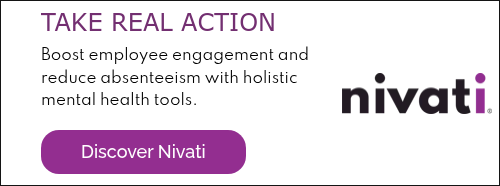In 2011, I stood on Bagram Airbase in Afghanistan, surrounded by blast walls, razor wire, and sandbags. In a photograph from that time, I'm armored up, helmet secure, standing guard at a fortified outpost. To most, that image symbolizes peak stress and pressure.

But reflecting on my journey from Marine to Chief Revenue Officer in the tech sector, I've discovered a surprising truth: the pressure I feel now often surpasses what I experienced at Bagram, though it looks entirely different.
This might sound strange. At Bagram, alarms were frequent, threats real, and danger immediate. But here's the thing: the stress and struggle were universal. We all knew it, saw it, felt it. We carried it together. A glance, a nod, even dark humor was enough to remind us we weren't alone. We openly joked about our fears, because we could all see it in each other and nobody knew how to talk about it.
---
Fast forward to today, at the executive table. The risks I manage now involve careers, livelihoods, and the health of our employees and their families. These pressures hide behind endless meetings, ambitious quarterly targets, and the steady pulse of email notifications. Unlike my time at Bagram, these stresses feel quieter, subtler, yet far more isolating. Despite having an incredible team around me, there's an expectation, or maybe it's self-imposed, to always have the answers, always maintain composure.
I've come to realize the bravest leaders aren't those who carry the burdens alone; they're the ones who recognize vulnerability as an essential strength. Whether at war or in business, when we openly share our challenges, we lighten the load for everyone around us.
As leaders, we also need to remove unnecessary burdens from our employees. Each of our team members has a full life outside of work, with its own unique stressors; credit card debt, car issues, unexpected home repairs, family concerns. Each employee is a whole person and needs holistic support to thrive, not just professionally, but personally as well.
I'm also a strong advocate for "no fault leadership." My team is empowered to think creatively and solve problems innovatively. If something goes wrong, it's my job as a leader to step in and support, fix, or clarify my intent. Mistakes made by employees reflect opportunities for clearer guidance and better training from me, not a personal failing on their part. Encouraging open conversations about mistakes builds trust, fosters innovation, and ensures everyone feels safe taking risks.
If you're reading this as a leader, I encourage you to ask yourself:
- What am I doing to remove the burden for my team?
- How am I supporting my team both personally and professionally?
- How often do I openly acknowledge uncertainty in front of my team?
- Do I genuinely encourage my team to share their struggles or mistakes without fear?
- What actionable step can I take today to foster a more open, supportive environment?
Great teams aren’t defined by leaders who pretend to have all the answers, they’re defined by those who create spaces where it's safe to say, "I'm struggling, and that's okay."
The business outcomes of embracing vulnerability are clear: lower burnout rates, increased team trust, higher employee retention, and ultimately, better performance. Stress is universal, but isolation doesn't have to be.
Most people don't make it out untouched. But together, by making it safe to be human, we create teams capable of remarkable things.
---
Learn about more Nivati's human-centered approach and how it can transform your company and team's wellbeing and productivity.








